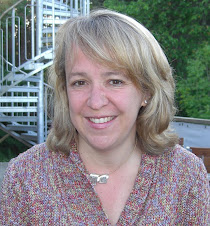I went to a parent networking group last night related to elementary school children with speech disorders. Though it was recommended by Christopher's speech therapist, I wasn't actually sure I needed to go to the group, as the boys are still a bit young, and seem to have more of a speech delay than a severe speech disability. I even missed the first hour (another football game - might as well move there) which ended up being about dyslexia. We're not there yet, so I don't know if we'll have problems with reading.
In the end, I did feel a connection, though many of the parents had situations (autism, epilipsy) that made our boys seem lucky. However, at least their children have a word or a diagnosis that allows them to get the help and extra resources they need. I have always been mystified at how we would know the severity of a speech problem - when they couldn't speak, then it was obvious. But now that they are speaking pretty fluently (or at least Benjamin is), it is harder to tell where they are in relation to their peers. The most telling comment of the evening was when we were discussing how a speech delay can make children have a hard time making friends. The back-and-forth of conversation on the playground can make it difficult to stay with the game if you don't understand everything. Children with speech delays are often relegated to playing "the dog or the baby" in games because these are the roles that don't require much - if any - speech. How interesting that the kids on the playground are more aware of our childrens' speech delays than we are ourselves.
The other comments that worried me were around how a delay in speech can impact so much of school later on. As speech progresses, active and passive vocabulary grow. Vocabulary continues to grow with reading, but speech delays tend to go hand in hand with reading difficulties, thus contributing to the problem.
And then I had a chance to feel extremely fortunate with our choice of dagis. Each day, when I drop off the boys, I feel that they are genuinely welcomed, not just tolerated. They have received special attention and assistance, and none of it has ever been presented to me as a burden or a hardship on the part of the personnel (as some of the parents in the group had experienced).
Ah well - bigger kids, bigger problems... and we're just getting started!
Thursday, May 08, 2008
Subscribe to:
Post Comments (Atom)



No comments:
Post a Comment